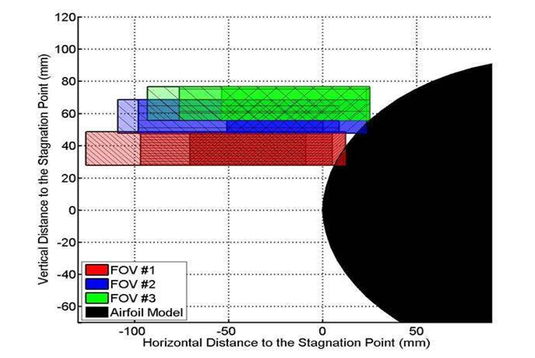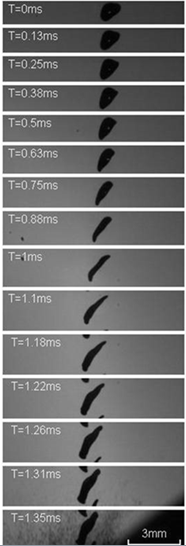
Adelaida Garcia-Magarino
Isdefe, Spain
Title: Droplet deformation and breakup in the shoulder region of an aerodynamic surface: Experimental characterization
Biography
Biography: Adelaida Garcia-Magarino
Abstract
Statement of the Problem: To study droplet aero breakup, many theoretical and experimental studies (based, mostly, on shock tube type facilities) have been carried out in nearly constant high flow velocity conditions. However certain applications of aeronautical engineering interest are characterized by accelerating flow profiles and the flow velocity profile has influence on the droplet deformation and breakup processes. Previous studies concern droplets in the stagnation line of the leading edge of an airfoil, while this investigation studies the behavior of the droplets in the shoulder region of an incoming airfoil.
Methodology & Theoretical Orientation: Experimental tests were conducted in the rotating arm facility at INTA. A blunt airfoil model of chord 0.47 m was mounted at the end of the rotating arm of length 2.2 m that moved at 50, 70 and 90 m/s. A stream of water droplets of diameter of 1000 µm was allowed to fall in the path of the airfoil. The air velocity observed by the droplets, which was continuously increasing, was characterized using PIV. The phenomenon was recorded by a high-speed camera at 72000 fps using the shadowgraph illumination technique. Droplets trajectories and deformations were obtained in three different regions close to the airfoil shoulder (Figure 1).
Findings: The results show that droplets in the shoulder region tend to rotate providing new structures, different from those obtained in the stagnation line (Figure 2). The rotation generates interferences between droplets that have been quantified using an existing theoretical model derived for droplets in the stagnation line.
Conclusion & Significance: Deformation of droplets in the shoulder region of an airfoil has been studied for nine cases corresponding to three different airfoil velocities and three fields of view height. In these regions droplets tend to tilt significantly, which causes aerodynamic interferences between consecutive droplets.


Recent Publications
1. Theofanous T G (2011) Aerobreakup of Newtonian and viscoelastic fluids. Annual Review of Fluid Mechanics 43:661-690.
2. Rendall T C and Allen C B (2014) Finite volume droplet trajectories for icing simulation. International Journal of Multiphase Flow 58:185-194.
3. Iuliano E, Mingione G, Petrosino F and Hervy F (2011) Eulerian modeling of large droplet physics toward realistic aircraft icing simulation. Journal of Aircraft 48:1621-1632.
4. Cao Y, Wu Z and Xu Z (2014) Effects of rainfall on aircraft aerodynamic. Progress in AerospaceSciences71:85-127.
5. Sor S, García-Magariño A and Velázquez A (2016) Model to predict water droplet trajectories in the flow past an airfoil. Aerospace Science and Technology 58:26-35.
